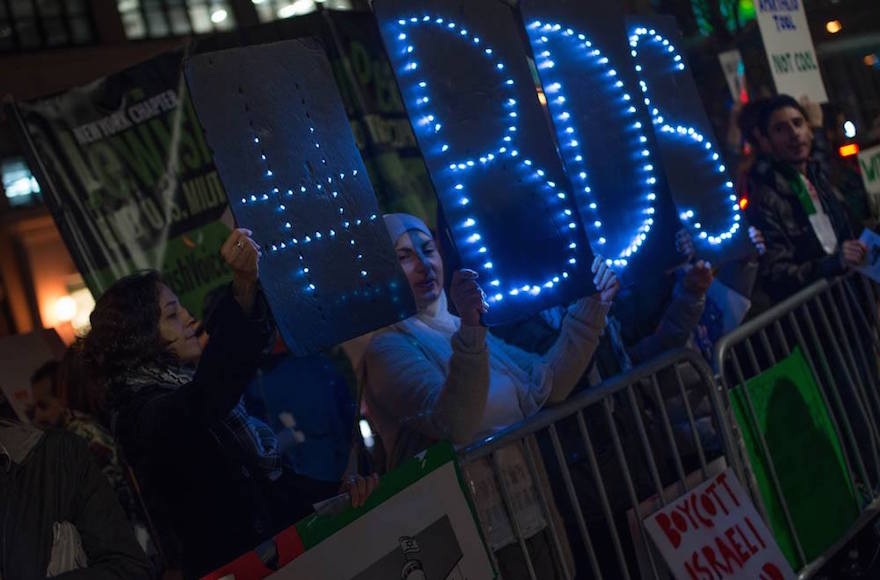(JTA) — Just days after rejecting four resolutions calling for divestment from companies that profit from Israel’s control of the West Bank, the United Methodist Church recommended withdrawing from the US Campaign to End the Israeli Occupation.
In a nonbinding vote of 478-318 at its general conference in Portland, Oregon, on Tuesday, the church accepted a petition requesting its withdrawal from the group, Religion News Service reported. It was not clear if the church would act on the recommendation.
The US Campaign to End the Israeli Occupation is a national coalition that “works to end U.S. support for Israel’s occupation of the Palestinian West Bank, Gaza and East Jerusalem,” according to its website.
The Methodist petition called the group a “one-sided political coalition” that seeks to isolate Israel “while overlooking anti-Israel aggression.” The US Campaign promotes the Boycott, Divestment and Sanctions movement against Israel and seeks to end U.S. aid to that nation.
“Blaming only one side while ignoring the wrongdoing of Hamas, Hezbollah, and Iran will not advance the cause of peace,” the petition added.
Not everyone was pleased with the vote.
The Rev. Armando Arellano, a delegate from Ohio, told RNS the US Campaign is “neither pro-Palestinian or pro-Israel, but pro-equal rights for all.”
“By withdrawing from the coalition,” he said, “we are withdrawing our commitment to be an agent of peace and justice.”
Over the weekend, a church committee rejected four resolutions calling for the church to divest from companies that profit from Israel’s control of the West Bank.
The resolutions called for divesting from three companies that pro-Palestinian activists have accused of working with Israeli security forces to sustain Israel’s West Bank settlement enterprise. They are Caterpillar, Hewlett-Packard and Motorola.
Similar boycott, divestment and sanctions petitions failed at general conferences in 2008 and 2012.
Last week Hillary Clinton, the front-runner for the Democratic presidential nomination who was raised and remains a practicing Methodist, criticized the BDS movement in a statement that was believed to be directed at the church, though it did not specifically mention the church.
In January, the Methodists’ pension fund removed five Israeli banks from its portfolio, saying the investments were counter to its policies against investing in “high risk countries” and to remain committed to human rights.
BDS activists have scored a series of successes in recent years in advancing similar resolutions, most prominently by the United Church of Christ in 2015 and the Presbyterian Church (USA) a year earlier.
JTA has documented Jewish history in real-time for over a century. Keep our journalism strong by joining us in supporting independent, award-winning reporting.






